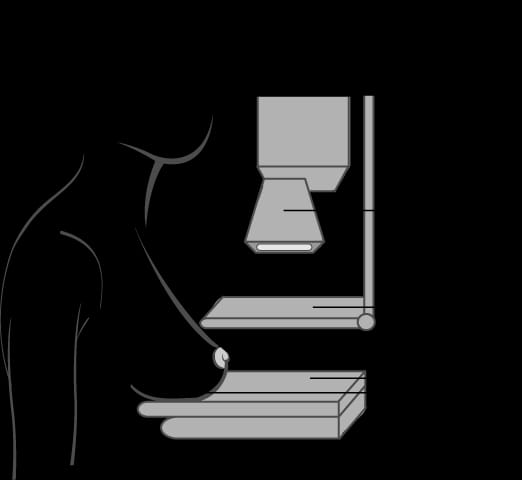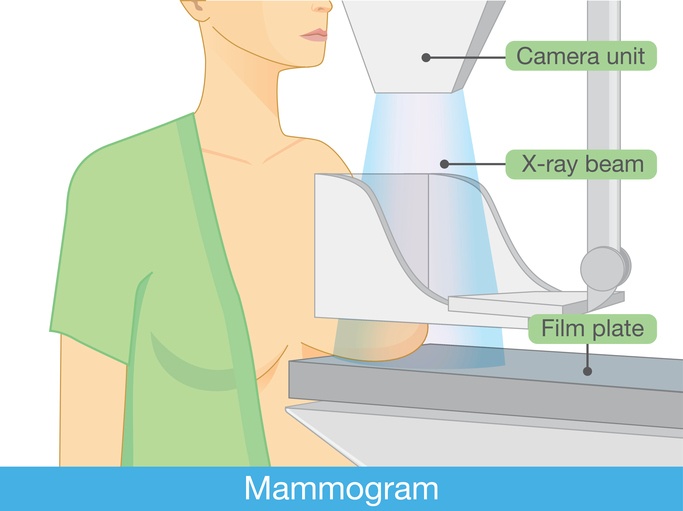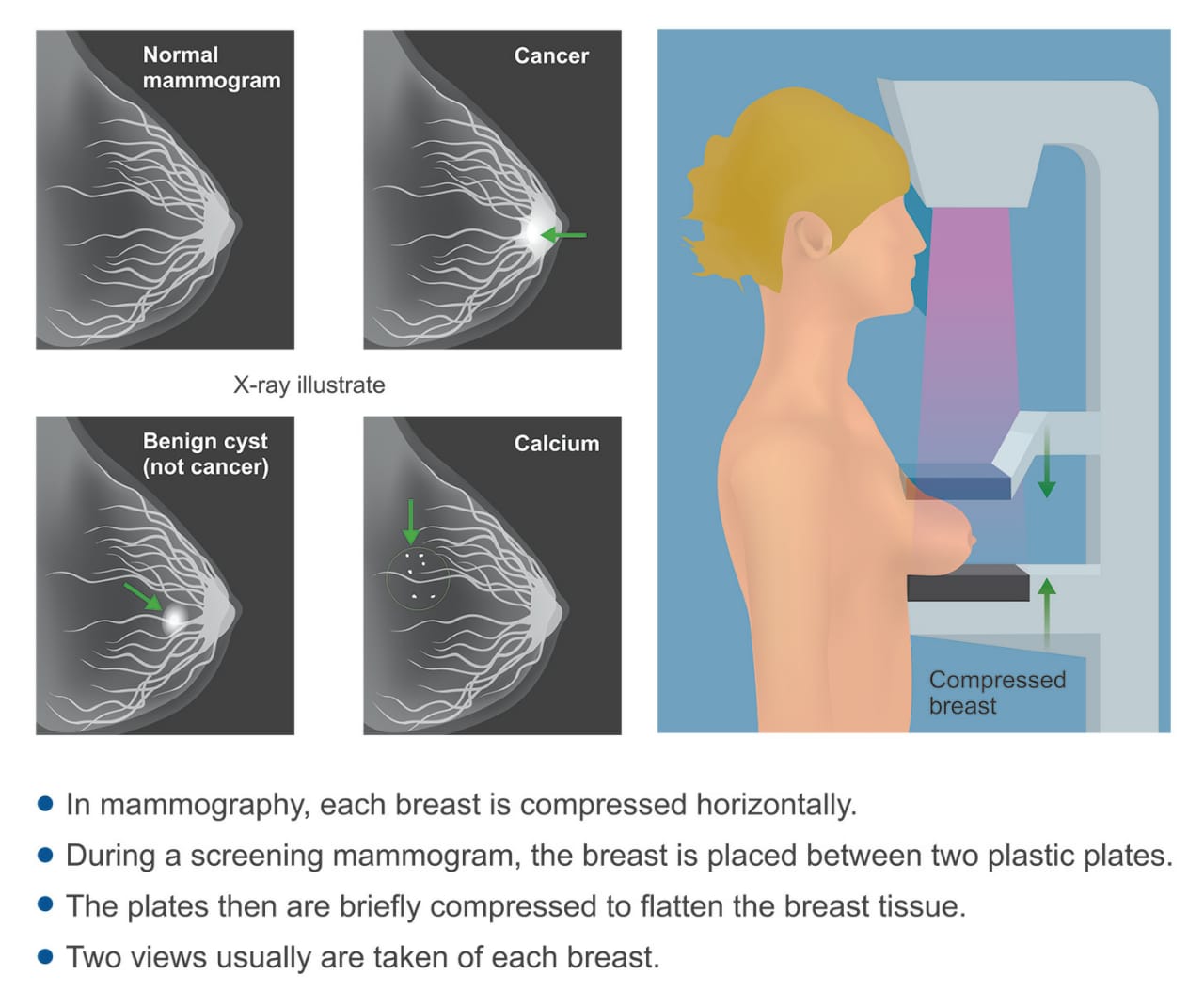Breast Cancer Screening
Various organizations have developed guidelines for cancer screening for women.
We usually screen for Breast and Cervical cancer at our clinic.
Not all screening tests are right for everyone. Your personal and family cancer history, and/or the presence of a known genetic predisposition, can affect which tests are right for you, and at what age you begin them. Therefore, you should discuss these with your doctor.
Breast Cancer Screening :
Breast cancer is the most common cancer amongst women in urban and second in rural India.
Projection for India in 2020 – over 1,70,000 new cases. 1 in 28 women is likely to develop Breast Cancer in India.
Breast cancer occurs almost entirely in women, but 1% - 2% men can get it too. Breast cancer occurs when some breast cells begin to grow abnormally. These cells divide more rapidly than healthy cells and continue to gather, forming a lump or mass. The cells may spread (metastasize) to the lymph nodes or other parts of the body.
Signs and Symptoms of Breast Cancer :
Every woman must be aware how her breasts normally look and feel. This will help her to be aware of changes in the breasts immediately, so that she can take action without any loss of time.
- A lump in the breast or underarm (most common symptom).
- Change in the size, shape or appearance of the breast.
- An inverted nipple (newly developed).
- Peeling, scaling, crusting or flaking of the area of skin surrounding the nipple or breast skin.
- Redness or pitting of the skin over the breast (like the peel of an orange).
- Bloody or clear discharge from the nipple.
- Swelling, warmth, redness or darkening on the breast.
- Itchy, scaly sore or rash on the nipple.
Breast Cancer Screening for Early Detection
Screening is the best way to protect you from breast cancer. It does not help prevent the cancer, but it can help find it early when treatment is easier and less invasive.
Breast Self- Awareness:
It is important to check yourself regularly, so that you can spot any change immediately. Remember to check all parts of your breasts, armpits and up to your collarbone.
Check once a month, one week after your period, after age 20.
Clinical Breast Exam:
It is an examination by a doctor or nurse who will check both breasts and the lymph nodes in armpits. Recommended every 3 years between 20 & 30 and every year after 40.
Mammography:
It is an x-ray of the breast which can find cancer when it is too small to be felt. To be done after age 45 upon advice of Doctor and based on personal risk factors. If an abnormality is detected, the doctor may recommend a diagnostic mammogram for further evaluation.



Diagnostic Tests:
Breast ultrasound. Ultrasound uses sound waves to produce images of structures deep within the body. This test may be used to determine whether a new breast lump is a solid mass or a fluid-filled cyst.
Biopsy – (Removing a sample of breast cells):
A biopsy is the only definitive way to make a diagnosis of breast cancer. During a biopsy, a specialized needle device guided by sonography is used to extract a core of tissue from the suspicious area. Biopsy samples are sent to a laboratory for analysis to determine whether the cells are cancerous, the type of cells involved in the breast cancer, the aggressiveness (grade) of the cancer, and whether the cancer cells have hormone receptors or other receptors which may influence the treatment options.
Breast magnetic resonance imaging (MRI) :
An MRI machine uses a magnet and radio waves to create pictures of the interior of the breast. Before the MRI, a dye is injected. An MRI does not use radiation to create the images.
Other tests and procedures may also be used depending on the requirement.
BRCA gene test is a blood test that helps assess your risk of developing cancer by detecting a potentially harmful change (mutation) in BRCA1 and BRCA2 genes. The blood sample goes to Genetic lab for DNA analysis. It is very important to fill the Test Requisition Form (TRF) with accurate personal, clinical and family history (if present) details to enable effective interpretation of test
OPD Timings
Dr. Mandar R Gadgil
| Mon – Fri | - | 4:30 PM - 7:30 PM w.e.f. 27th August 2022 |
| Saturday | - | 10:00 AM - 11:30 AM |
OPD Timings
Dr. Maithilee Gadgil
| MON – SAT | - | 10:00 AM - 12:30 PM |
| MON – FRI | - | 4:30 PM - 07:00 PM w.e.f. 27th August 2022 |
Any Question Or Query
Feel free to ask for your any Question or Query /
Book An Appointment
Appointment
To book appointment call us on

